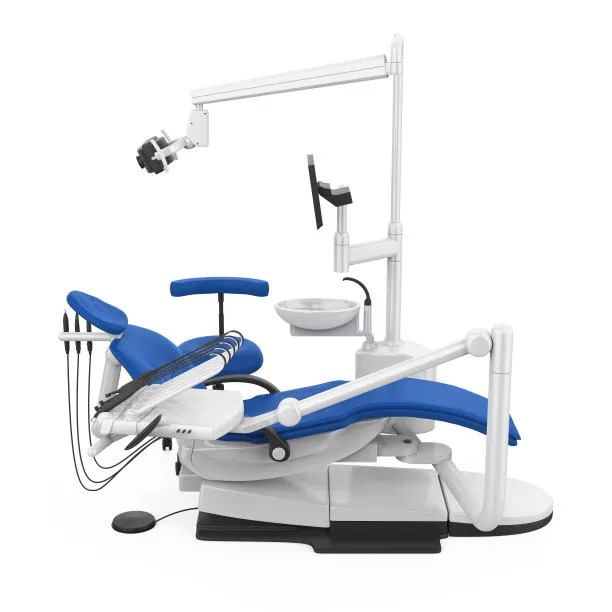Essential Considerations and Precautions You Should Know Before Getting a Dental Filling for Optimal Oral Health
Summary: Dental fillings are a common treatment for cavities and damaged teeth, crucial for maintaining oral health. However, several considerations and precautions are necessary to ensure optimal outcomes from the procedure. This article delineates four essential aspects: understanding the type of filling materials available, the importance of following pre-treatment instructions, recognizing potential post-treatment complications, and emphasizing the value of proper aftercare. Each of these elements plays a vital role in ensuring that dental fillings not only restore the functionality of teeth but also promote lasting oral health.
1. Understanding Different Filling Materials Available

Dental fillings come in various materials, each with specific benefits and drawbacks. Common options include amalgam, composite resins, glass ionomer, and porcelain. Amalgam fillings are durable, making them ideal for back teeth, but they are noticeable due to their metallic color. In contrast, composite resins can be closely matched to the color of natural teeth, making them popular for visible areas.
Choosing the right material involves considering factors such as the location of the filling, the extent of the cavity, and personal preferences regarding aesthetics and durability. For instance, if youre concerned about the look of your smile, you might prefer composite or porcelain fillings. However, be aware that these options might require more frequent replacements compared to amalgam fillings.
Your dentist can provide detailed information about the pros and cons of each filling material. An informed choice not only supports the immediate repair of your tooth but also contributes to your long-term oral health. Always discuss these options with your dental professional before making a decision.
2. Importance of Following Pre-Treatment Instructions
Preparing for a dental filling requires more than just scheduling your appointment. Your dentist will provide specific pre-treatment instructions that may include dietary restrictions or recommendations for medications. Following these guidelines is crucial to ensure the procedure goes smoothly and to minimize discomfort.
For instance, avoiding certain foods or caffeine might be advised before the day of your dental visit. Additionally, if you are on medication, its essential to inform your dentist, as some medications can affect the treatment process or healing time. Being transparent about your health history allows the dentist to tailor the procedure to your needs.
Moreover, understanding what to expect during the filling process can ease anxiety and help you mentally prepare. This understanding can lead to a more positive experience, ensuring you are both physically and mentally ready for the procedure.
3. Recognizing Potential Post-Treatment Complications
After getting a dental filling, it’s vital to be aware of potential complications that may arise. Some patients experience discomfort or sensitivity in the treated tooth for several days. This sensitivity is often normal and can be managed with over-the-counter pain relievers, but it’s important to monitor your symptoms.
Additionally, you should watch for signs of complications such as excessive pain, swelling, or a filling that feels loose or has fallen out. These symptoms could indicate an infection or an improper fit, necessitating prompt consultation with your dentist. Early intervention can prevent further complications and preserve your oral health.
Furthermore, always adhere to your dentist’s advice on what to do if you experience severe discomfort post-treatment. Remember, maintaining open communication with your dental care provider is key to addressing any issues that might arise.
4. Emphasizing the Value of Proper Aftercare
Proper aftercare following a dental filling is imperative for ensuring long-lasting results. After your procedure, you should be mindful of the foods you consume. Eating soft or less abrasive foods for the first few days can help protect the filling while it sets, particularly if you opted for composite materials.
Additionally, maintaining excellent oral hygiene is crucial. Brush your teeth at least twice a day and floss daily to prevent future cavities and to keep the area around the filling clean. Regular dental visits for check-ups and cleanings can further help monitor the integrity of the filling and your overall oral health.
Lastly, avoiding bad habits such as grinding your teeth or chewing on hard objects can extend the life of your fillings. If you suspect you grind your teeth at night, discuss it with your dentist, as they may suggest a night guard to protect your dental work.
Summary:
Being well-informed about dental fillings enhances the overall experience and contributes positively to oral health. Understanding filling materials, following pre-treatment instructions, recognizing potential post-treatment complications, and prioritizing proper aftercare are essential considerations. By taking these precautions, you not only restore your teeth effectively but also safeguard your health for the future.
This article is compiled by Vickong Dental and the content is for reference only.



